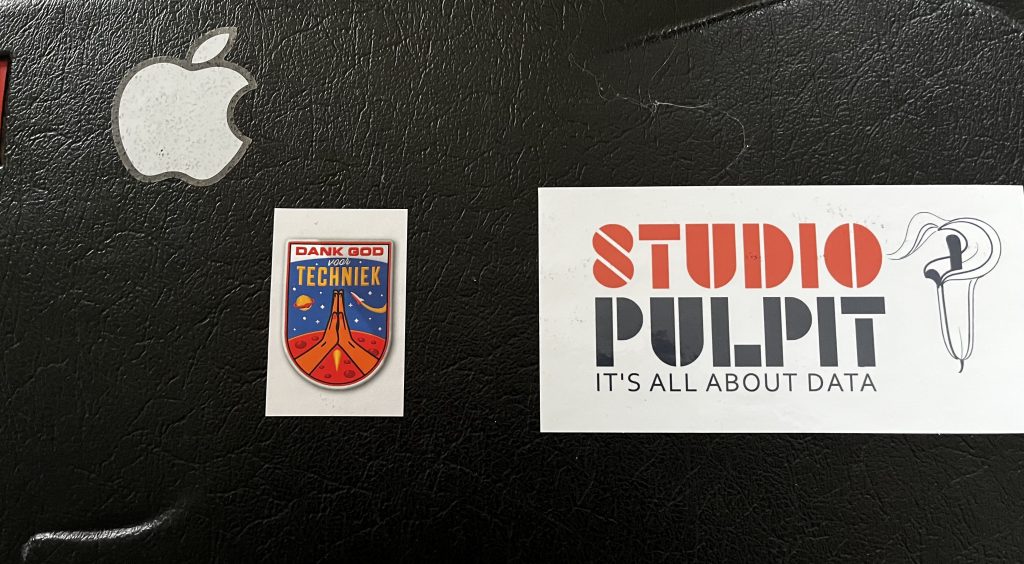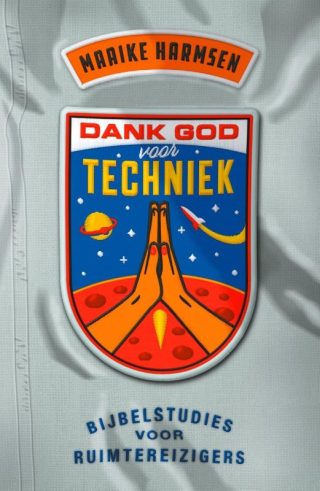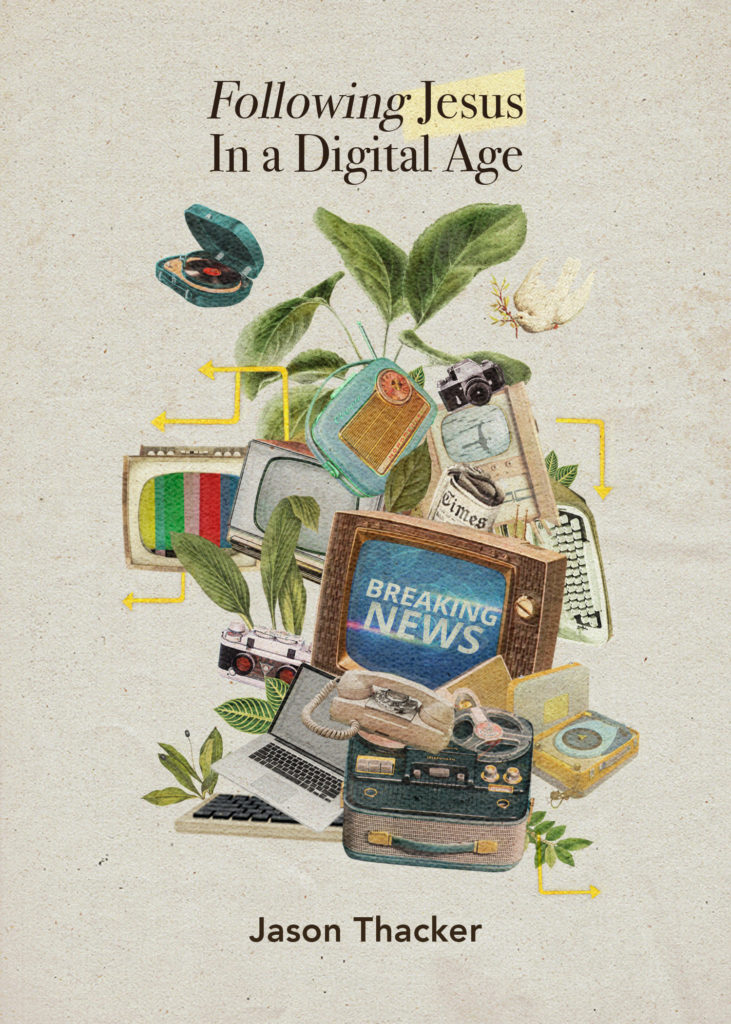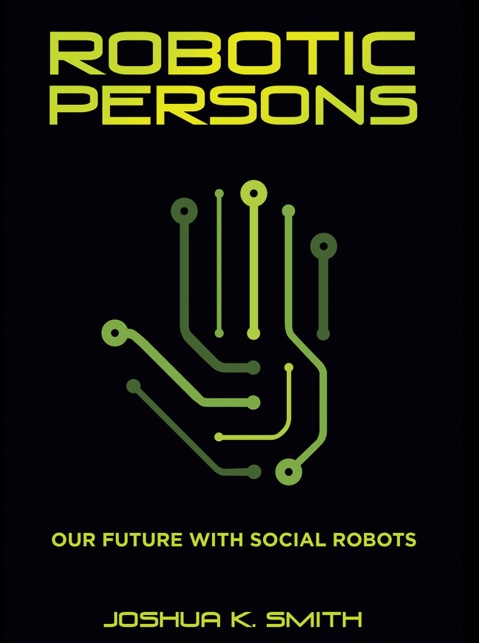Introduction
One of the reasons why I am pursuing my master’s in Theology is to connect theology and technology from an ethical perspective. This intersection is a new genre but more and more theologians are starting to write about this topic. The most recent book I read is the book Christian Ethics for a Digital Society by dr. Kate Ott. The review starts with setting the stage, in which I will describe the context of the book and the writer. In the subsequent section I will summarize the key points of the book, which will be followed by a review and suggestions for the reader.
Setting the stage
Technology is playing an ever more important role in our daily lives which cries out for a critical and ethical engagement. However, according to the author, dr. Kate Ott, the majority of people isn’t able to provide such a response and react either in “crippling fear” or in “worshipful awe.” In her book she tries to move beyond the ignorance of the many, and come up with a critical engagement towards digital technology based on a daily ethical practice. According to Ott, traditional ethics “grounded in absolutes or calculations” will not suffice but different ethical approaches are needed that “embrace growth, interdependence, and creativity.” In the book she advocates for Christians to develop a digital literacy, which does not only mean reflection about technology, but also applying this in such a way that this leads to a “more just and inclusive world.” The interesting thing about the book is that the author is not a technologist but has a background in feminist theories and sexual ethics. Ott, who currently teaches at Drew University in the United States, uses this background and methods to come up with a practical ethical framework based on “embodiment and interdependence with creation.” In a way she has documented her quest to a critical and ethical engagement with digital technology from an outsider’s perspective. I have been working in the world of (software) technology for last two decades and I have read her book from a technology insider’s perspective. I must admit that the author has done a great job in explaining what technology does and bringing this into conversation with theology and ethics. The result is a unique book that not only provides ‘food for thought’ but challenges the reader to look in the screen (not in the mirror) and make a change.
Key points of the book
The book is structured around four themes from the world of digital technology: algorithms, social interaction using digital technology, archiving and surveillance technology and the environmental impact digital technology has on our planet. Each chapter provides an introduction to the topic and a critical theological and ethical reflection, or as the reviewer Jen Jones puts it “Each chapter extends discernment of digital technology encompassing individual, relational, and societal considerations and implications.” In the concluding chapter Ethical Hacking and Hacking Ethics, Ott drives the key points of the previous chapters home in proposing to approach digital technology like an ethical hacker. Hacking normally has a negative connotation to it, but transforming the digital society requires the mindset of a hacker and entails “the ethical call to gain access to the ecosystem of digital technologies and define the vulnerabilities to be patched as the perpetuation of social inequalities and injustices.” I will briefly discuss the key points of each chapter (theme) below.
Algorithms
The first chapter about algorithms, called Programming for Difference, is a topic that is closely related to my professional life. Algorithms are one of the most important components of digital technology and they mediate how we interact with the world. Based on data, algorithms make predictions that e.g., inform our internet searches, movie recommendations and social media feeds. In a way, algorithms adapt towards our needs and they make our lives more individualized and seem to promote diversity. However, Ott is quite right when she exposes the algorithmic paradox of diversity, as algorithms reduce human beings to quantifiable units and impose an “imperial dominance of sameness.” People are much more homogeneous than they are willing to admit and algorithms reflect and amplify their cultural biases. Many people unconsciously accept what the algorithms feed them and in this way, they are unaware of how the values of these algorithms shape their lives. Ott uses the Tower of Babel narrative (Gen. 11:1-9) to analyze algorithms from a theological and ethical point of view. This story is one of the most frequently used stories in the Bible used by theologians and biblical scholars, when they want to put technology in a biblical context. The key message is that humans in our era use technology in order to become more like God themselves, and in this way they resemble the people who tried to build the tower of Babel. God punishes the people by bringing confusion among the people by letting them speak different languages. Ott has a different hermeneutical approach, which clearly reveals her roots in feminist theology, emphasizing that it was God’s intention to have multiple languages as this is a token of diversity which is “a defining feature of creation.” In her opinion it is not the building of the tower that God condemns, but it is the use of a single universal language that erases all differences. She quotes the American professor in journalism Jack Lule to underscore how digital services providers in our time can be compared to the Babel narrative:
Tech Giants on the other hand consider digital technology and electronic communication a way of regaining what was lost at Babel. They suggest both through translation and the ubiquity of common media that again one language is being created.
The quote above is a good example of the algorithmic paradox Kate Ott brings forward in her book. Algorithms are the language of our time and shape our culture in such a way that many are unaware of. One of the best parts in the book that I wholeheartedly agree with, is that she calls for a digital literacy in order to respond to digital technology in an ethical manner or as she puts it: “everyday ethical living in a digital world requires curiosity and basic literacy with how digital technology functions.” An appropriate ethical response to algorithms starts with an awareness how they function and how they do not promote diversity by default. Ott’s call to action is to actively stand up and defy algorithmic bias as much as one proportionally can. Those with greater knowledge and influence on how algorithms function, think of programmers or data scientists, have a greater responsibility than those who are end users. By actively engaging and by deliberate interaction with algorithms we become more digitally fluent and are co-creators who are asked to actively promote diversity and prevent that we all speak the same language powered by algorithms.
Social interactions on digital platforms
In the second chapter, titled Networked Selves, Kate Ott zooms in on the role digital platforms play on relationships people have with themselves, others and God. A lot of interactions between humans has shifted from the physical world to the digital world and especially social networking platforms, often referred to as social media, play an important role in this. This networked understanding of the self is the key ingredient of this chapter and Ott focusses on the role data plays in forming our identity, Ott calls this the datafied self, and our relationships with the other and God. Just like in the previous chapter it starts with the awareness of the role digital platforms play in the formation of our own identity; digital technology is no longer something separate, but it is completely integrated in our “being in the world,” in other words, we are “datafied, embodied, and spiritual beings.” This construct poses all kinds of moral questions about who we are supposed to be in relationship to ourselves, the other and to God, and for this Ott introduces the theological notion of attunement to help us orient ourselves. Attunement based on a trinitarian understanding of God is a model for being an innovative Christian that supports a networked approach of relationships and promotes inclusivity. The ethical approach that follows from the notion of attunement latches on to the approach how to deal with algorithms, as it was set out in the previous chapter. It starts with the awareness of how digital technology is using data to instrumentalize our relationships, especially on social media platforms, and how the algorithms used are based on values of the digital world. The algorithms can make us feel very networked, you can e.g. 500+ friends on Facebook, but they do not promote deeper relationships. The core value of attunement is to understand how this works and what role this plays in our lives. The identity that the algorithms compose of us is based on the data they have collected and processed, and this influences who we meet and what we see. This can have moral implications which many are unaware of. Digital platforms, powered by their algorithms, can promote bias and make us blind for the otherness of the others. An appropriate theological and ethical response, based on the notion of trinitarian attunement, is that we “recognize, understand, and liberate ourselves and society from racism and other moral deformations of our digitally embodied spirits if we are to live into God’s example of difference in unity as the imago dei of a networked self.”
Archiving and surveillance technology
The previous chapter focused mainly on the way digital technology shapes our personal lives and relationships. In the third chapter Moral functions beyond the Delete key the primary focus is on how the boundary between private and public information is being changed by digital technology which raises ethical questions about privacy and surveillance. Digital platforms are a huge archive of all the digital interactions we have done, so every search, click, like and swipe is being stored and being used by the algorithms of the digital platforms. It seems that these platforms remember everything and that we live in a world where “forgetting has become a luxury.” In this chapter Ott focuses on the concept of forgiveness in the context of digital platforms that never forget. She uses the theological notion of metanoia for this and this is described as “the process by which faith positively enables the human capacity to make change.” The culmination of the amount of data archived has social shaping consequences at two levels. On the one hand it influences individual people’s behavior which raises moral questions about privacy, and on the other hand, at a more aggregated level, it raises questions about social surveillance. Again, data and algorithms have more impact on shaping behavior than the majority of people is aware of. And especially because of the “indelible nature of digital data” this can have great consequences. As seen in the previous chapters, an ethical response to this starts with awareness and deliberate actions on both the personal and legislative level. Some scholars suggest that a good response would be to be able to delete the data, however Ott claims that she prefers accountability at personal and systemic level (metanoia) over erasure. This would lead to better and restored relationships with others and with God.
Environmental impact
The last theme Kate Ott covers in her book is about the environmental impact digital technology has. This chapter, dubbed Creation Connectivity, addresses a much-overlooked aspect of digital technology, which is the impact it has on the environment and the natural resources that are consumed. Since many people perceive digital technology as a potential solution to help fight environmental damage, they often don’t associate this with the environmental damage it inflicts. Ott argues for an “ecologically friendly digital technology” which is based on a theological model of interdependence with creation. This all starts, again, with raising awareness of the ecological footprint digital technology is making and for this Ott suggests the notion of mattering which is described by the sociologist Jennifer Gabrys as “it is a way to make an intangible both materially visible and have relevance or value.” By making the intangible visible, it should provoke people to think and ultimately would lead to an ethical response. Ott concludes the chapter that “awareness about the digital environmental impact is an important aspect of digital literacies” and this is an important ingredient for a Christian moral responsibility for a more just and diverse world.
Ethical hacking
In the last chapter of the book, Ethical Hacking and Hacking Ethics, the author wraps her call to action up in the notion of ethical hacking. Hacking to her is an “ethical call to gain access to the ecosystem of digital technologies and define the vulnerabilities to be patched as the perpetuation of social inequalities and injustices.” The ethical responses she proposed in the previous chapters are about diversity, attunement metanoia and responsible co-creation. All can be summed up as increasing digital literacy in order to make a change. Ott argues that using a theological mindset can help us find a hermeneutical vocabulary that will help us interpret digital technology, and help us become a better datafied, spiritual and embodied being.
Review and suggestions for the reader
Books about technology treated in the context of
theology is an upcoming genre and I have read a couple of them. This book is
clearly different, because of the author’s focus on social ethics and her
outsider’s perspective. Ott does a great job in describing the current
technological landscape and has clearly become proficient in what is happening
in the world of digital technology. I must admit that, especially in the first
chapter, she hits the nail on the head in discerning in how digital technology
is influencing and shaping our lives. I also absolutely agree with her that we
need to increase our digital literacy in order to start using digital technology
in an ethical, responsible way. In the book theological and ethical concepts
are innovatively intertwined and will leave the reader with lots of ‘food for
thought’. The book is especially interesting for practitioners who want to
learn more about how they should engage with digital technology in their
Christian environment. This book will be helpful for e.g. ministers,
theologians and philosophers. The book is less suited as a practical how-to
guide in how to navigate as a Christian in the world of digital technology
since it is more of an academic work. I found the chapter about the impact that
digital technology has on our environment an eye-opener and I think lots of
work has to be done in that space.
When you read the book, it becomes clear the author has a background in social and feminist/ womanist ethics. Her focus is predominantly on the power and biases digital technology embodies and how this can oppress and marginalize minorities and lead to less fair and unjust world. In my opinion she focuses too much on the oppressive and negative aspects that digital technology brings to bear and has left out counterexamples on how digital technology can help in creating a better world. The real world of digital technology, in my opinion, is more nuanced than the picture Ott paints. There are also many examples available on how e.g. algorithms and social media have increased the opportunities for refugees and helped physicians in third world countries to provide better care. My recommendation to other readers would be to complement reading this book with a book that focuses more on the positive outcomes digital technology offers. By contrasting and comparing both books one gets a more nuanced and better understanding on how digital technology works and what impact it has on our personal lives and society. Based on this, a robust ethical response can be grasped. In sum, I would definitely recommend reading this book for any Christian theologian or minister who is interested in the ethical consequences and workings of digital technology. Ott does an outstanding job in exposing the power digital technology has on our society and how this can lead to an unjust society. However due to the lack of focusing on the upside of digital technology I would recommend reading additional literature to inform one’s ethical response to digital technology.
References
Ficatier, Antonin. “Book Review: Kate Ott, Christian Ethics for a
Digital Society.” Studies in Christian Ethics 33, no. 1
(2020): 130–133. https://doi.org/10.1177/0953946819883780d.
Jones, Jen. “Book Review: Kate M. Ott, Christian Ethics for a Digital Society.” Journal of Moral Theology 9, no.1 (2020): 249–250.
Ott, Kate M. Christian Ethics for a
Digital Society. Lanham: Rowman & Littlefield, 2019.
Notes
.




